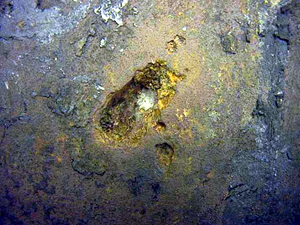Team's Efforts

The MURI team is exploring the fundamental mechanisms of fuel- and biofuel-induced corrosion. With contributions from investigators at four universities, the interdisciplinary research initiative is working to determine the connections between the chemical composition of various fuels and their propensity to undergo biodegradation and thereby accelerate biocorrosion. Our work is designed to understand the physical, chemical, and biological nature of the underlying processes so that diagnosis and mitigation efforts can be effectively targeted. The project is divided into eight technical approaches, each with a series of objectives. The specific research work being performed includes, following biodegradation pathways of fuel and biofuel components; modeling biodegradation kinetics; obtaining mechanistic correlations between fuel compositions; determining the extent of fuel degradation and biocorrosion; identifying problematic fuel components; developing predictive models for biomass growth and metal corrosion; molecular characterization of important microbial assemblages; chemical characterization of fuel and associated metabolites; and surface analytical characterization of corroded steel and of bioorganic minerals produced by biofilm assemblages. Collectively this research will provide a scientifically defensible basis for assessing the biological stability of alternate fuels and their impact on biocorrosion. The knowledge gained will lead to better tools for monitoring and mitigating corroding infrastructure facilities and for assessing the risks associated with biofuel use.
Joseph Suflita, Ph.D
Center Director
University of Oklahoma
660 Parrington Oval
Norman, OK 73019
(405)325-5761
jsuflita@ou.edu